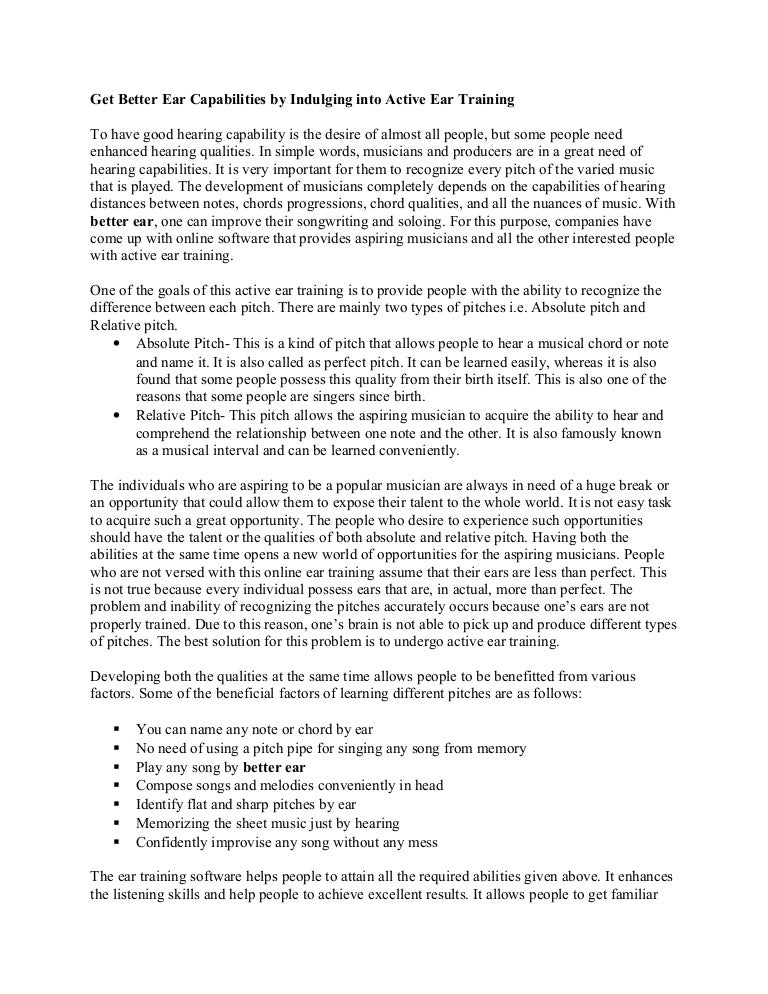

They seem not only to hear poorly but also has trouble holding their head steady, or is slow to sit or walk unsupported. (Some hearing impairment affects only high-pitched sounds some children have hearing loss in only one ear.) They seem to hear some sounds but not others. (This is usually mistaken for inattention or resistance, but could be the result of a partial hearing impairment.) Their speech is not understandable 50 percent of the time by two and a half years of age. They do not put two to three words together at two years of age. They do not say five to 10 words by 18 months of age.

Their speech is delayed or hard to understand, or they don't say single words such as "dada" or "mama" by 12 to 15 months of age. They concentrate on gargling and other vibrating noises that they can feel, rather than experimenting with a wide variety of vowel sounds and consonants. They don't notice you until they see you. Your child doesn't startle at loud noises by one month or turn to the source of a sound by three to four months of age. The impairment also may be from a malformation of the inner ear. Or, if the mother had rubella (German measles), cytomegalovirus (CMV), toxoplasmosis, or another infectious illness that affects the inner ear during pregnancy, the fetus could have been infected and may lose hearing as a result. Even without a family history of deafness, the cause is frequently genetic) Parents and other family members often are unaffected because each parent is only a carrier for a hearing-loss gene. The impairment can be present at birth or occur anytime after. This type of hearing impairment is caused by an abnormality of the inner ear or the nerves that carry sound messages from the inner ear to the brain. Sensorineural hearing loss (also called nerve deafness) Another possible cause is fluid in the middle ear that interferes with the transfer of sound. Or, there may be a large amount of cerumen (wax) lodged in the ear canal. When a child has a conductive hearing impairment, there may be an abnormality in the structure of the outer ear canal or middle ear. Permanent hearing impairment varies from mild or partial to complete or total. Much less common is the permanent kind of hearing impairment that always impacts normal speech and language development. Because of this, they sometimes have delays in talking. Children with this problem don't hear as well as children typically do.

In many children, perhaps 1 in 10, fluid stays in the middle ear following an ear infection because of problems with the Eustachian tube. This hearing loss is usually only temporary normal hearing commonly returns once the congestion or infection gets better and the Eustachian tube (which connects the middle ear to the throat) drains the remaining fluid into the back of the throat. Most children experience mild hearing loss when fluid builds up in the middle ear from congestion, colds, or ear infections. Even a temporary but significant hearing impairment during this time can make it very challenging for the child to learn spoken language or speech patterns. If your child experiences hearing impairment during infancy and early childhood, immediate attention is needed. It can lead to developmental challenges if not recognized and treated early, since normal hearing is needed to understand spoken language -and then, later, to produce clear speech. However, hearing impairment at birth, or that develops in infants and toddlers, is of extra concern.


 0 kommentar(er)
0 kommentar(er)
